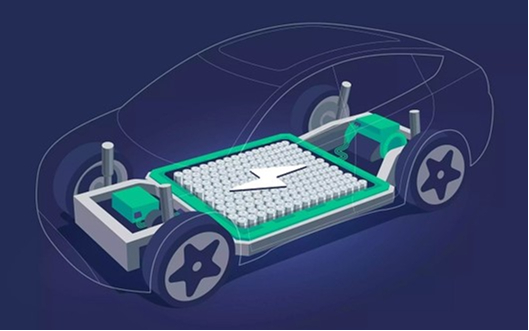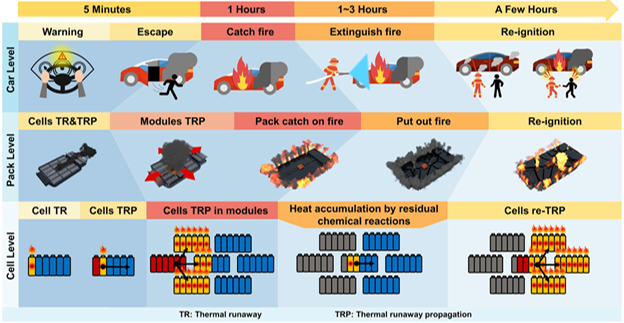
Battery issues are the most common concern for hybrid and electric vehicles today, primarily involving storage batteries, high-voltage batteries, hybrid batteries, and energy management systems for electrical power. Specific aspects of battery-related problems include lifespan (durability), battery temperature, and battery degradation:
- Over time, hybrid batteries degrade due to natural chemical processes. This degradation results in reduced capacity and overall performance.
- Symptoms: Decreased energy efficiency, shorter electric-only driving range, and reduced overall performance of the drivetrain in hybrid and electric vehicles.
- Recommendations: Regular inspections and maintenance, avoiding deep discharges (overexertion), and adhering to the manufacturer's recommendations can help slow the degradation process.
- Faulty Battery Cells: Battery packs consist of individual cells. If one or more cells fail, it can have impact on the overall performance of the battery pack.

Electric Vehicle Accidents Caused by Battery Failures
- Symptoms: Unstable performance, warning lights related to the hybrid system, and diminished energy storage capacity.
- Recommendations: Depending on the severity, it may be necessary to replace the faulty cells or, in some cases, the entire battery pack.
- Temperature Effects on Batteries: Batteries in electric and hybrid vehicles are highly sensitive to extreme temperatures. High temperatures can accelerate degradation, while very low temperatures may affect performance.
- Symptoms: Reduced performance, increased battery degradation, and potential warnings related to temperature issues.
- Recommendations: Park in shaded areas, use thermal management systems to regulate temperature, and follow the manufacturer’s guidelines for extreme weather conditions.
- Overcharging/Overheating: Overcharging or overheating hybrid batteries can cause damage and reduce their lifespan.
- Symptoms: Increased temperature and warning lights related to the battery or charging system.
- Recommendations: Regularly check and maintain cooling systems, avoid overcharging, and follow recommended charging practices.
- Software Management: The performance of batteries in electric vehicles is often managed by complex software. Malfunctions or software errors can affect battery performance.
- Symptoms: Inconsistent or unstable performance and illuminated warning lights.
- Recommendations: Software updates or reprogramming may be required to address issues. Regular updates from the manufacturer can help prevent such problems.
- Imbalanced State of Charge (SOC): Over time, the state of charge across the battery cells may become imbalanced, leading to inefficiencies.
- Symptoms: Reduced overall capacity, potential operational issues, and warning lights.
- Recommendations: Balancing procedures can be performed, and in some cases, individual battery cells may need replacement.
- If battery issues are suspected in hybrid or electric vehicles, it is crucial to consult the vehicle's user manual, follow the manufacturer's recommendations, and seek professional assistance from certified technicians or experienced dealers specializing in hybrid systems.
- Currently, many manufacturers offer special warranties for their hybrid components, including batteries, which may cover replacement or repairs within a certain mileage or time frame.
- Regular, timely inspections and maintenance, along with prompt attention to any warning signs, can help ensure the battery's longevity and reliability.